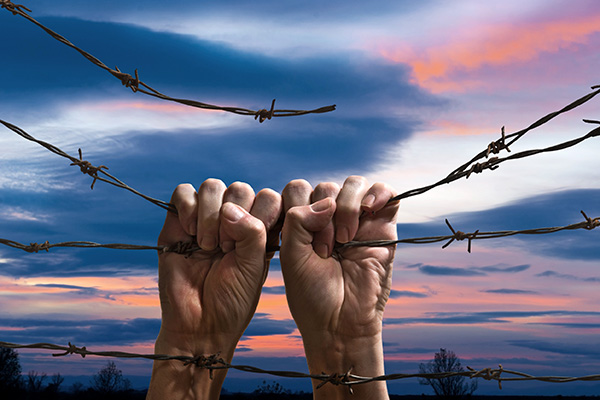atonement
Free Yourself From Karmic Debt
 One of the most important things we must do before we leave this life and embrace the next is to ensure that our karmic debts are completely resolved. By doing so, we leave this world unburdened and ready to embrace our next existence with complete bliss.
One of the most important things we must do before we leave this life and embrace the next is to ensure that our karmic debts are completely resolved. By doing so, we leave this world unburdened and ready to embrace our next existence with complete bliss.
Now, if the consequences you may suffer in the afterlife are not of much concern to you, and you feel that karma is not really your problem, you may want to reconsider.
Carrying the heavy burden of karmic debt can also cause considerable misery and struggle in our present daily lives, manifesting as recurring negative patterns and obstacles that hinder our progress and well-being.
Our unresolved karma often leads to dysfunctional relationships, financial difficulties, health problems, and emotional turmoil as past harmful actions generate corresponding negative consequences. An ongoing state of karmic debt fosters feelings of frustration, helplessness, and despair, making it difficult to achieve happiness, joy, fulfillment, and peace.
By carrying the weight of unresolved karmic debt, you may find yourself trapped in a cycle of suffering, unable to break free and achieve the positive, fulfilling life you desire.
Karmic debt is a concept rooted in the spiritual principle of karma, which is a fundamental belief in many Eastern philosophies and religions, especially Hinduism and Buddhism. Karma refers to the universal law of cause and effect, whereby every action has a corresponding reaction. Our poor choices and negative actions create a spiritual debt. By acknowledging this debt and resolving our past mistakes, we achieve a state of inner peace, higher consciousness, spiritual growth and enlightenment.
Blessed Are The Kind And Helpful
September is Virgo season! What better time to consider becoming a better person by being more compassionate and supportive to others in need? Virgos are known for being helpful, kind, sympathetic, and someone others can lean on.
Virgo happens to be my Sun sign, so I have a bias here. But seriously, nothing is more rewarding than to be of service. Nothing blesses us more than helping to make the world a better place.
We owe it to ourselves and others to be of service. Because once we are truly there for others, we soon begin to notice undeserved joys and blessings filling our wellspring of abundance every day.
When we are kind, helpful and of service to others we begin to draw more beneficial energy to us, and lose track of the need to count money at the table as it comes in. Work is simply fun! Others see our joy and inspire towards similar goals in their own lives.
Those who are unkind or disregard the needs of others, even treating others as their emotional punching bags, eventually have a heavy karmic duty to repay. Being selfish, narcissistic, and cruel are the sources of much misery, anxiety and self-destructive, addictive behaviors in many people’s lives. It simply does not pay to be callous and uncharitable.
Of course, we all have our self-absorbed ‘bad days,’ because none of us are perfect. But we do an inventory at the end of the day, reflecting on how our conduct may have made others feel.
Create a sacred space in your home where you may atone for your missteps; peaceful area where you may recite a daily intention for grace. Equip this space with an essential oil diffuser or incense burner, candles, crystals and gemstones, oracle cards or runes, prayer beads, singing bowls, personal mementos, photos of loved ones, artwork, and other symbolic items.
The ‘Big Chill’ Moment Of A Soulmate Reunion
 I started my first full-time job at age 17 working in the Conservation Corps. I grew up in a rural community and the local Conservation Corps was engaged in environmental stewardship, such as clearing debris and fallen trees from streams to prevent floods and fire hazards. As a teenager, I had many small jobs babysitting, gardening, and so on, but this was my first serious employment after graduating high school.
I started my first full-time job at age 17 working in the Conservation Corps. I grew up in a rural community and the local Conservation Corps was engaged in environmental stewardship, such as clearing debris and fallen trees from streams to prevent floods and fire hazards. As a teenager, I had many small jobs babysitting, gardening, and so on, but this was my first serious employment after graduating high school.
On my first day of work, I sat on a fence waiting for the bus that would drive us into the woods, when another bus full of ‘city kids’ arrived. The first guy that emerged from the city bus looked directly into my eyes and I remember having a million thoughts all at once!
His eyes were green, like mine. I believe that was a memory trigger. A memory trigger is a soul recognition clue that we program into the psyche before we come into this life. Its purpose is to remind us subconsciously of a soul contract. Soul contracts are agreements between ourselves and others to work out karma in this lifetime.
Mr. Memory Trigger Eyes looked down almost immediately once he saw me, bashfully, with a blushing face. Looking into his eyes felt like a lightning bolt hit my body. I felt a ‘big chill’ at the same time. The hair on my arms stood up. It was electric and exciting! There was an instant familiarity between us.
Although I had never met him before, I somehow felt I knew him. His face seemed familiar, which I ascribe to the built-in memory triggers. The ‘big chill’ is spirit stirring your psychic memory. I instantly knew I recognize his energy signature from past lives and the spirit realm. I even heard my higher self whisper, “He’s the one.” And he did turn out to be my first love in this lifetime.
During the three months we worked together, he flirted shyly with me, stared at me from afar. I knew we would eventually be in a relationship. There was never any doubt in my mind. I just knew it. But what was taking him so long?
A Sincere Apology Is Good For The Soul
 One of the most difficult things in life is knowing when to apologize. It is obvious in some situations, but in others not so much. There are times when we need to weigh out all our options. Is the situation worth an apology, even if you are not the one who created a problem?
One of the most difficult things in life is knowing when to apologize. It is obvious in some situations, but in others not so much. There are times when we need to weigh out all our options. Is the situation worth an apology, even if you are not the one who created a problem?
Knowing the right time to apologize is critical to the resolution. Was it done intentionally, or was it unintentional? Did the action cause others stress, worry, or pain?
You must also ask yourself if you can live without apologizing the rest of your life. Is it worth losing a friendship, leaving a group, resigning from a job, or not speaking to a family member ever again?
The good old Golden Rule can always come in handy in this dilemma. If you have done something that you would not want done to you, then apologize and seek atonement! Many people find it almost impossible to apologize. They struggle to acknowledge their own part in an argument or wrongdoing.
Some just do not seem to understand their actions were unacceptable, or they always feel that the world is out to get them. There is no compromise in their mind. They always try to twist every situation to make it seem like it is another person’s fault.
For some people, on the other hand, an apology seems to roll off their tongue a little too easily. When a sincere apology is made it must be followed by actions. Actions speak louder than words. By not repeating the offense, for example, it shows a true and sincere apology.
Sometimes all the other person needs to hear is a sincere, “I am sorry.” When we accept responsibility for our actions, we tell others we are sorry for hurting them. It is not always easy, but releasing guilt always is good for the soul.
Taking On Karmic Debt
 If a person broke into my home and committed a robbery, the police would definitely be called, charges would be laid, and the ramifications of that particular act would remain in the capable hands of the legal system. Since this is a willful, intentional act, that individual deserves whatever consequences would be dished out to him.
If a person broke into my home and committed a robbery, the police would definitely be called, charges would be laid, and the ramifications of that particular act would remain in the capable hands of the legal system. Since this is a willful, intentional act, that individual deserves whatever consequences would be dished out to him.
His ongoing problem, which he may not be aware of, is that although he would be paying his penalty, perhaps with a prison sentence or something similar, he still would be accumulating also a karmic debt. This he most likely would not even consider at the time.
Karmic debts do not disappear. One must always account for them at some given time. It is a universal law that never wavers.
You would most assuredly agree with me that this kind of crime is a clear one that is easily interpreted. A person wanted what was not his. However, this did not deter him. He knowingly, on a conscience level, sought to commit an unlawful act, despite the grief and trauma it might cause his victim. His wrongdoing is plain to see and, despite restitution or an apology, profound damage was done to the owner of the property he stole.
But suppose another character committed a different kind of crime. One that was not so blatantly noticeable, however, it caused the same emotional harm to another, or possibly even worse. The person might knowingly and willingly create a scenario that leads to a series of events that becomes extremely traumatic or detrimental to another.
